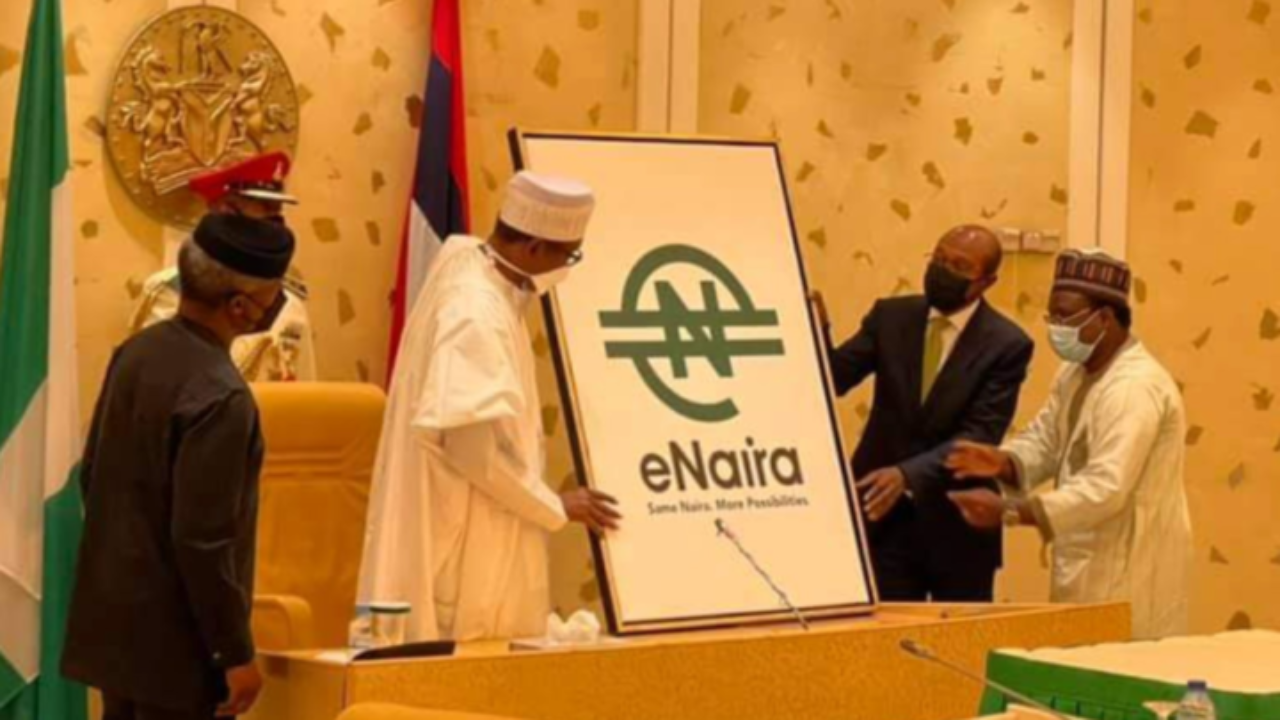The Central Bank of Nigeria (CBN) has introduced enhanced eNaira services to address the concerns of Nigerians about the Naira scarcity caused by redesigning the naira notes.
The enhanced services of the e-Naira will now see wallets funded by purchasable recharge vouchers and the introduction of a USSD code that will allow users to carry out financial transactions seamlessly.
The announcement of the improved services was made on Thursday by Bayo Akintoye, the Founder and Chief Executive Officer of Bullnet platform. He disclosed that the new service, which would be run by Bullnet platform, is a result of a collaboration between the CBN, Chamsmobile and Super Agents.
“The CBN has collaborated with Chamsmobile Limited (a CBN licensed Mobile Money Operator) to address challenges faced primarily by the unbanked, the underserved, and those on the other side of the digital divide by developing the service known as ‘e-nairaenhanced Services’ via the e-naira USSD channel (*997*50#), which is fully run and powered by the patented Bullnet Platform,” he said.
Nigeria to establish a regulatory framework for stablecoins and ICOs
CBN enhances e-naira services with funds from GSM recharge cards
“It is expected that Nigerians will proudly associate with this innovation and register to have the eNaira wallet. These wallets can be funded directly with cash-purchased vouchers (like the GSM recharge cards) or from funded bank accounts using bank cards via the web portal or using electronic payment with any authorized agent.” he said.
More about the eNaira enhanced services
The introduction of the USSD code and cash-purchased vouchers would further help to improve financial inclusion in the states, increase cross-border transactions, and diaspora remittances and also to complement payment infrastructure, which is the purpose of the e-Naira per the CBN’s cashless policy.
The USSD code, *997*50#, can be used to perform all transactions while the wallet owner does not need a traditional bank account.
Users can send funds to an ATM directly from their wallets and withdraw cash without needing a bank account.
Users can fund their wallets by purchasing vouchers which function like GSM-recharge cards or fund their wallets via a web portal using the debit cards issued by traditional banks.
Users can also send eNaira to a designated account for savings or for further transactions using
One year after launch, eNaira struggles with low adoption with ₦8bn volume from 700,000 transactions
Otaru Abdulkadir, Project Coordinator, eNaira Project Giant Team, represented the Co-ordinator. explained that the eNaira extension workers can buy and register SIMs and then assist customers with no phones to operate their wallets with any available mobile phones.
This will enable people in rural places with network outages to perform financial transactions, and the extension workers can keep a physical ledger record of their eNaira transactions.
Read More; Supreme court to deliver judgment on Naira redesign policy on March 3
On October 25, 2021, the CBN launched the eNaira, making Nigeria the first African country to launch a CBDC and one of the five countries in the world to adopt the technology. Interestingly, the launch came seven months after cryptocurrency transactions were banned in Nigeria.
The CBN disclosed in December 2022 that the circulation of the digital currency rose to N402 million, and its transaction volume increased to 5 billion.
President Muhammadu Buhari and CBN governor, Godwin Emefiele at the launch of the eNaira
President Muhammadu Buhari and CBN governor, Godwin Emefiele at the launch of the eNaira
Last year, Mrs Rakiya Mohammed, CBN Director for Information Technology Department, reminded Nigerians that “E-naira is easy to onboard, get it, fund it, use it, anyone can be on board with it. In Nigeria, we have had several drivers for IT growth; inclusive payment is a rallying driver for the CBN.”
After the new naira notes were unveiled, divergent opinions stemmed from different quarters about the likely effects of the naira redesign on the eNaira. However, experts agree on the possibility of driving up the adoption of digital currency.


